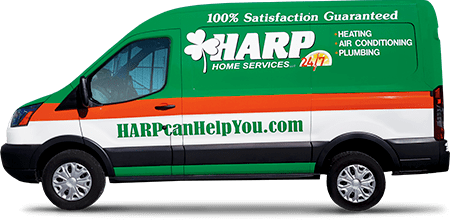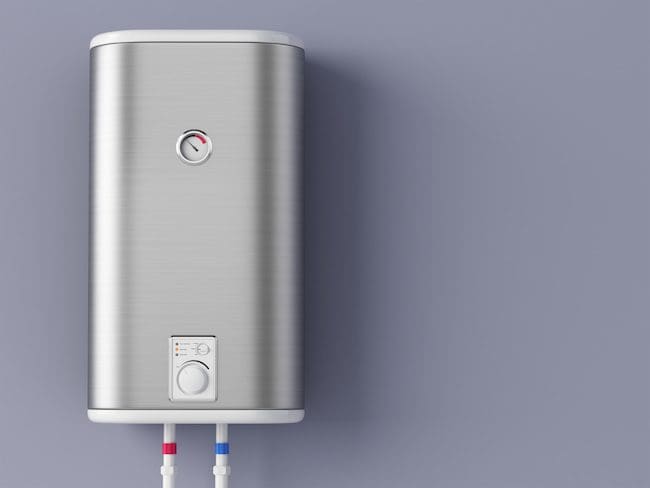
You might be considering replacing your old heater and, while you’re at it, you might as well get a new, more energy-efficient heater. So the question is: what are the different types of heaters and which one is the best? If you need help deciding which is the best heater for your home, check out our guide below.
Electric Heater
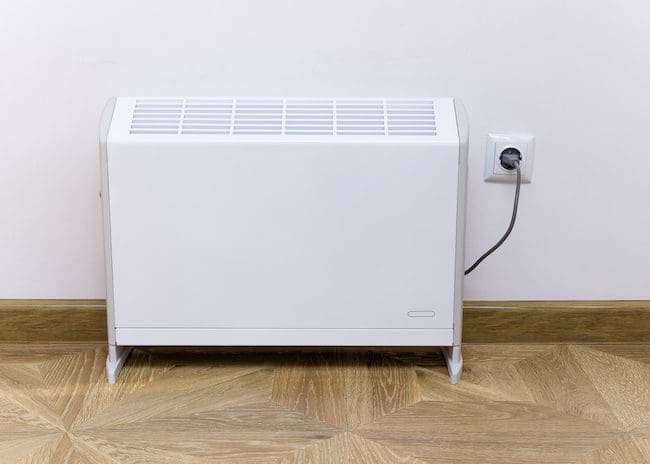
Electric heaters are definitely some of the most popular in the market. They last for a long time and are very easy to install. They can take many forms:
- Electric furnace
- Electric boiler
- Electric water heater
- Infrared panels
- Classic electric wall heaters
So how do they compare to the other types of heaters?
How it works
Electric heaters convert electric energy into heat by passing an electric current through a metal filament, which becomes hot and expels heat into the air.
Pros & cons
Pros
- Last longer
- The cheapest option to purchase and install
- Environmentally friendly
- Poses no risk of carbon monoxide poisoning
Cons
- More expensive to power
- Lower efficiency (wastes energy by taking longer to provide heat)
Electric heaters present many advantages such as the fact that they are usually small, making them easy to install and repair. On another hand, they tend to be more costly in the long term, especially since they are not ideal for large rooms.
Most efficient electric heater for home
The most efficient electric heater for home purposes would be a heat pump which is often recognized as one of the best electric heater types.
Heat pumps are highly energy-efficient, providing both heating and cooling capabilities. They work by transferring heat from the outside air or ground into your home, making them an eco-friendly and cost-effective option. However, it’s important to note that the suitability of a heat pump depends on factors like climate and installation requirements. Consulting with a professional can help determine if a heat pump is the best choice for your specific home and needs.
Read also: Boiler vs Furnace – Which one is the best?
Gas Heater

Another very popular option is gas heaters. Even if more regular maintenance is necessary, getting a gas heater tune-up is very easy and can get you a long way. Gas furnaces and heaters in general are usually cheaper to power and are widely serviced although Connecticut natural gas prices are more expensive than many other states in the United States.
How it works
A gas heater converts natural gas into heat by using a burner, which contains a flame, to heat cool air inside a combustion chamber. The system then circulates the heated air throughout your home.
Pros & cons
Pros
- Cheaper to power
- More efficient than electric heaters (requires less time and energy to provide the same amount of warmth)
- The most popular option among U.S. homeowners
Cons
- Requires more maintenance
- Poses safety risks, such as carbon monoxide poisoning
- Less environmentally friendly
Best Gas Heater
A gas furnace is a widely used and efficient option for home heating and is recognized as one of the best gas heater types. Gas furnaces are known for their ability to provide quick and powerful heating throughout the house. Gas furnaces offer reliable and effective heating, and their efficiency can be further enhanced by selecting models with high Annual Fuel Utilization Efficiency (AFUE) ratings.
Remember to consult with HVAC professionals to ensure proper sizing, installation, and maintenance for optimal performance and safety.
Oil Heaters
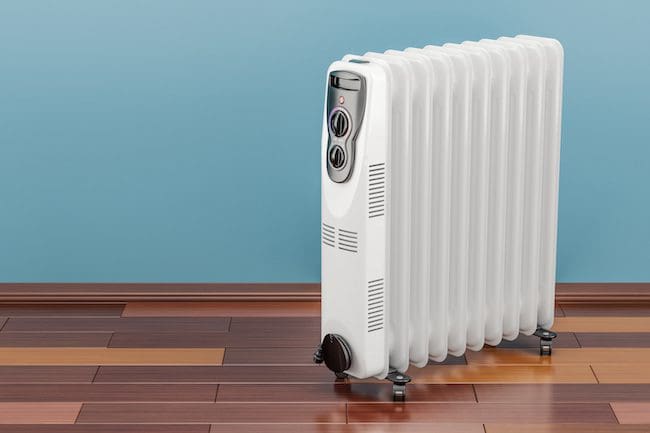
When it comes to oil heaters, they are less widely spread as electric or gas heaters in the United States. They are however a great choice as they are more environmentally friendly than gas heaters for example. Many homes upgrade to oil heaters each year like oil furnaces.
How it works
In an oil heater, a metal coil becomes hot when electricity flows through it. When the coil gets hot enough, it boils the oil to create steam. The steam rotates a turbine which spins a generator that produces electricity.
An insulated pipe carries heat from the generator throughout your home.
Pros & cons
Pros
- Lower upfront costs than gas heaters
- Environmentally friendly
- Convenient temperature control
Cons
- Higher upfront and operating costs than electric heaters
- Less efficient than electric heaters
The Best Oil Heater
The best oil heater for your home would be an oil-filled radiator which is known for its efficiency as they retain and radiate heat even after being turned off. These oil heaters use electricity to heat the internal oil, which then circulates and warms the surrounding air. This allows for prolonged warmth and energy savings. Oil-filled radiators are particularly suitable for providing consistent heat in small to medium-sized areas. They are a reliable and efficient option for home heating.
Propane Heaters
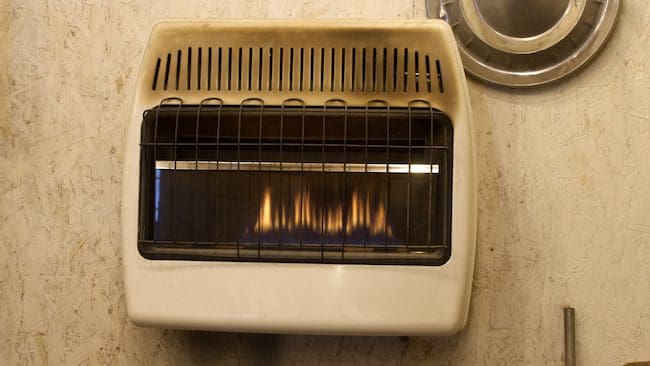
Propane heaters are a great alternative to oil and gas heaters, especially in states with limited access to gas and oil. Considering the price of natural gas in Connecticut is the 4th highest in all of the US, it might be worth thinking about switching to a propane heater.
How it works
A propane heater converts liquid propane into heat by using an electric coil to heat the liquid and convert it into a gas. The gas moves through an opening in the burner’s head, creating a flame. This flame heats the metal fins on the burner head’s exterior, which in turn heats the air that the intake vent draws in.
Pros & cons
Pros
- A good alternative for homeowners with limited access to gas and oil
- More efficient than electric heaters
- Cheaper operation costs than other alternatives
Cons
- Not widely used in U.S. households, making them harder to find and more expensive
- Poses a risk of gas leaks and explosions
- Shorter life cycle
How to Choose the Best Heater For Home Purposes
So should you get an electric or a gas heater? An oil or a propane furnace? Well, when choosing between all the types of heaters, consider these three factors:
-
Check for size requirements
You want a heater designed for the size of your space so it provides the correct amount of heat.
-
Look for a well-known brand
Lennox heaters are the safest option on the market today. If you need advice on the best heaters, contact Harp Home Services. Our years of experience in the industry enable us to provide expert advice and handle any type of heater installation.
-
Consider your budget
Choose a high-quality heater that fits within your budget. Lennox heaters are a great option when you are looking for a good price/quality ratio.
-
Opt for better energy efficiency
Although a more energy-efficient HVAC system might initially cost more, they are usually easily financed simply by how much you’ll save on energy costs in the long term. Finding the right system will go a long way towards both keeping your house warm in the winter, and cool during the summer.
Conclusion – What is the Best Type of Heater?
While electric heaters are durable and easy to install, they may be less cost-effective in the long run. Energy-efficient options like heat pumps do exist however and offer both heating and cooling capabilities while being environmentally friendly.
On another hand, gas heaters, like gas furnaces, are popular for their cost-effective heating and efficiency, but they require regular maintenance and can pose increased safety risks.
Ultimately, the best type of heater for your home depends on factors like home size, budget, and energy efficiency goals. Ensuring proper sizing, heater installation, and maintenance by HVAC professionals is crucial for optimal performance and safety. For high-quality HVAC services in Hartford, Connecticut, consider Harp Home Services, a trusted provider with over 25 years of experience in the industry.
Premium Household Warmth With Harp Home Services
Whether you need a heater repair or installation, Harp Home Services is the trusted local provider of high-quality HVAC services in Hartford, Connecticut. In addition to offering same-day heater tune-ups, repairs, and installations, our technicians are available 24/7 to provide the service you need whenever you need it. When you need expert heater service, choose a company with over 25 years of experience in the business.


